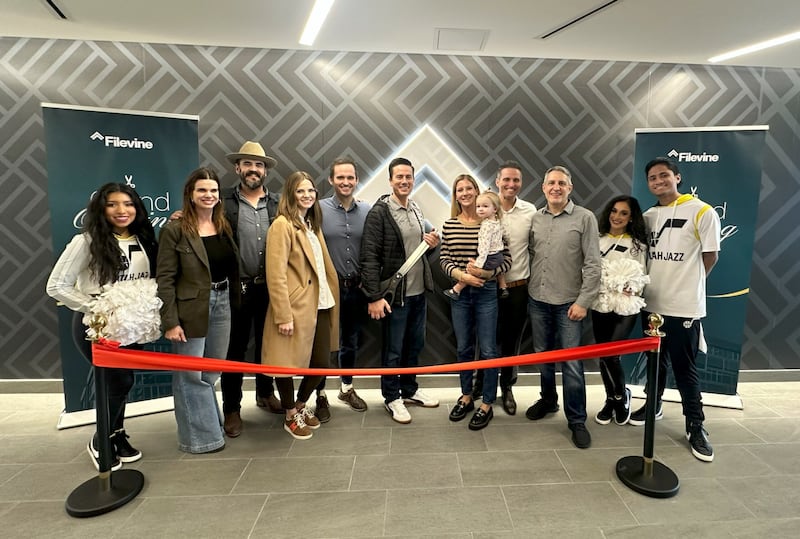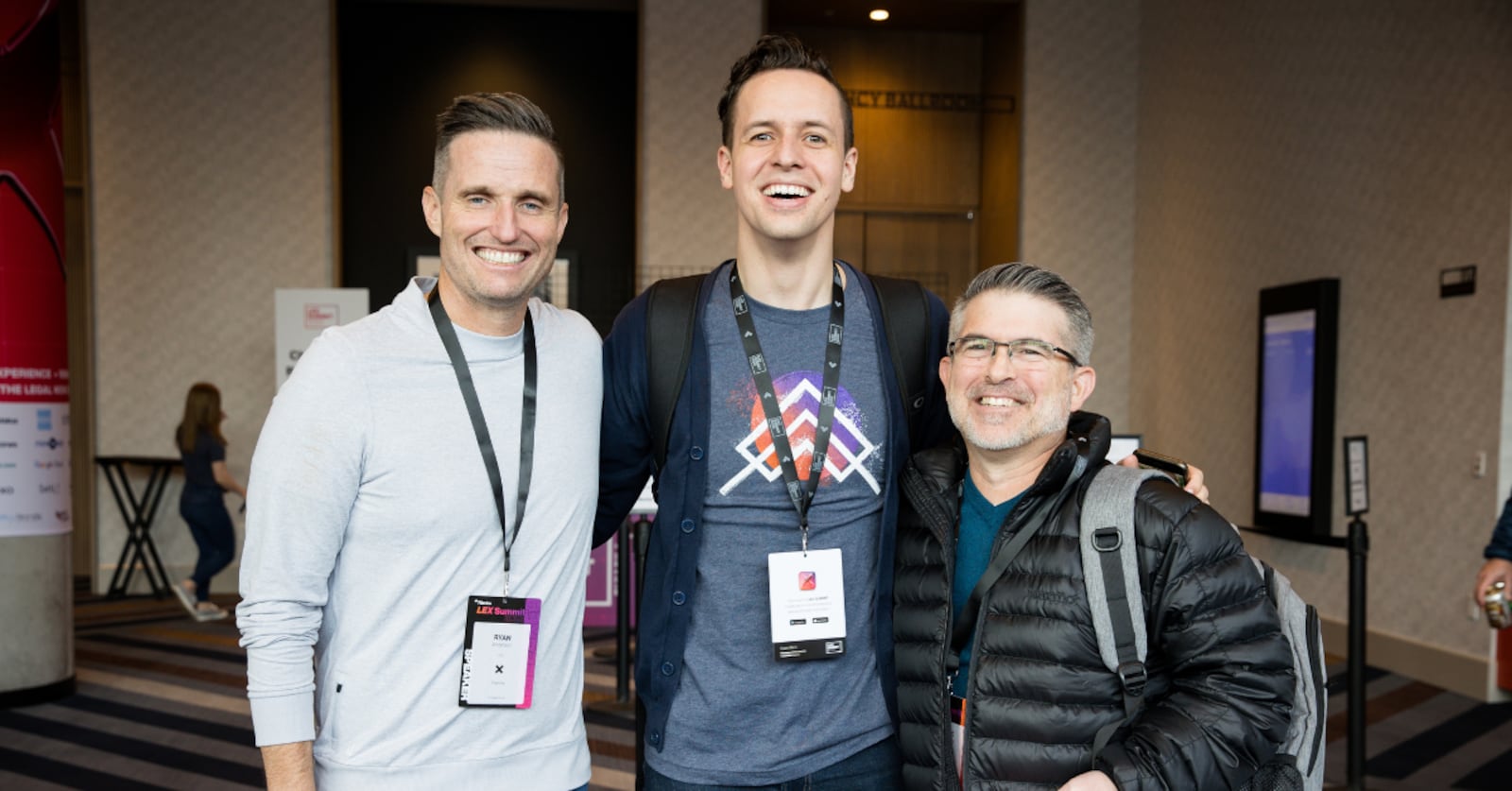This story appears in the June issue of Utah Business. Subscribe.
To talk about how I founded Filevine, I have to begin far from any thought of coding, UX or feature releases. I have to begin with the beauty and excitement — and maddening frustration — of practicing law.
I became a lawyer because I fundamentally believe in the work. The realm of law is powerful. It’s an unseen web of forces that shapes everything in your life, from the moment you’re born until after your death.
But so often, the actual work of being a lawyer comes down to a mountain of tiny and often tedious actions. You cite a precedent, follow a deadline and file a document. You market your firm, hire and manage employees, and do all the other business work necessary to succeed.
When legal minutiae piles up, the result is serious. The profession becomes harder, more stressful and less lucrative. If you accidentally miss a deadline or lose a document, you could face a bar investigation. The legal workflow problem affects everyone else, too — especially the clients of lawyers — making the work of justice slower, more expensive and harder to access.
I was one lawyer practicing personal injury law in the West. I was running a firm I started with my friend Nate Morris. I was good at the work. I felt I was making a difference. But I could not shake the feeling that it could all be done so much better.
Rethinking neglected markets
We were doing incredibly important and serious work, but we were using software written in the ’90s to handle clients and cases that demanded the power of modern tools. Our clients and the cases they brought to us called for more communication, power and mobility. We were managing extremely important and sensitive communication through Gmail, with crowded email inboxes that essentially became our default to-do lists. Technology made specifically for lawyers was so clunky and half-baked that it was unworkable.
It’s always been my opinion that when you reach around six people in a firm, you stop having merely client problems to solve. You start having management problems to solve. We were about six people, and we had a management problem. I was spending more time just trying to understand what my employees and I needed to do than I was actually doing things to help clients. I sensed that today’s modern technology could address our issues, but I couldn’t find solutions. I couldn’t even find software vendors who seemed to be taking the issue seriously.The accepted wisdom of the tech sector — and the venture capitalists who fund it — seemed to be that legal professionals weren’t an important market. We were too slow to adopt new technology, too risk-averse, too married to traditional ways of doing things, and really too niche to merit venture funding. Besides, the professional rules for lawyers are incredibly strict; maybe companies didn’t want to sink all of their time into making workflow technology for this incredibly demanding industry when it was simpler and faster to serve other sectors.

No one was going to swoop down and save us. We had to figure it out ourselves.
Finding the right co-founder
In what turned out to be the most important introduction of my life, I met Jim Blake — a one-of-a-kind, truly brilliant engineer — through a mutual friend. Within minutes of meeting Jim, I knew he could help us. He immediately started interrogating me (I use that word intentionally). Jim wanted to know why we were struggling, what was standing in our way of serving clients better, what we worried about in the business and what we hoped for. He understood it all so quickly. He probed deeper, trying to understand the root causes of every mistake. Recalling the questions I got from Jim that day, I remember feeling something of a gravitational pull toward the man who would become our co-founder. He had a somber charisma that belied a quick wit. But more than anything, Jim had a knack for simplifying issues and bringing clarity to complexity.
I showed Jim my “PI Checklist,” a Google sheet that contained everything I needed to know about every case we had. It was rudimentary; it was simple. It was the best we could do — and it was breaking down. Jim took his eye for simplicity and immediately diagnosed our lack of good tools to be a root cause of the challenges we had.
After several days of discussions with Jim about what we could do during lunch at Gyro Time on Charleston Blvd. in Las Vegas, Jim said, “Job one, I am getting you off that Google spreadsheet.” That was the day Filevine was truly born.
As I talked to my colleagues at other law firms, it turned out it wasn’t just us who wanted something better. Every legal professional I spoke to showed a real hunger to know more about our idea. They also felt ignored and underserved by tech companies.
The truth is, lawyers aren’t Luddites. They’re smart and ambitious, and an increasing number of them have been tech-literate their whole lives. They just need tech companies that are willing to invest the extra time into meeting their unique needs and strict requirements.
That’s why we first thought of Filevine, but turning it into a fully-fledged tech startup took a leap of faith.
Taking the plunge
We used the software Jim developed in-house to take control of the chaos that exists in any thriving legal office. Eventually, we let a few friends use it as well, just to try it out.
One day, I was in the middle of a deposition when my phone started going crazy. I turned it off until I finished the deposition. By the time I turned it back on, I had furious messages from my friends. Filevine had gone down, and they needed me to fix it immediately.
I joked to one of my friends, “I’m sorry you’re so mad about this free software I built in my closet.” I didn’t understand why he was so upset.
He answered, “I don’t totally want to admit this to you, Ryan, but my firm relies on Filevine.”
That was the moment that I understood that we had something. Even in its earliest iterations, Filevine was giving lawyers something they couldn’t find anywhere else. It was already a necessity for those using it.
That was my signal to take the plunge into doing this full-time.
It wasn’t an easy decision. Nate and I had built our law firm from the ground up. We had done meaningful work and seen real success. But I knew that we were on to something, and it wouldn’t exist unless I fully committed to it.
In March of 2015, I maxed out my credit card to get a booth at a legal conference and started selling Filevine.

Recruiting rockstars
My greatest asset as a CEO is my ability to find people — people who are smarter and more talented than me, who can build something better than I ever imagined — and convince them to join our team.
Anyone trying to start a company absolutely needs to find and recruit rockstars for these three roles:
- A never-say-die closer who truly loves your customers. For us, that’s Chief Revenue Officer Sean Dowdle. Sean joined the team when we were young and scrappy and made our sales team into a powerhouse.
- A genius architect who can build a product that’s better than your competitors’. For us, that’s Wes Cooper, our EVP of innovation, improvement and invincibility. Wes is the brilliant mind behind so much of what makes our tech great, including the highly innovative data architecture that allows us to serve a wide variety of lawyers.
- A relentless problem-solver who will get neck-deep into the messy conundrums that nobody else wants to solve and do whatever it takes to figure it out. I knew early on who the right person for this role was, but I couldn’t recruit him. He’s my brother, Michael Anderson, and he had other plans. He was busy analyzing global credit risk at Goldman Sachs and didn’t want to leave his successful career to take a chance on the strange startup his brother was always talking about.
It was Jim who won Mike over after a full year of working on him. Mike is now our chief product officer. He is willing to study completely new areas of expertise, muddle through the thorniest obstacles and hunt down the answer that’s right for us.
There are countless others whose intelligence and verve have made Filevine what it is today. They’re more important to our progress than any development, acquisition or round of funding.
Expanding into the unknown
It was a terrifying experience to leave a successful, established law firm to begin something completely new. I’m glad I didn’t know then that it would keep feeling that way — that every new dramatic step we’ve taken to grow our company would feel like another leap of faith. Success is never guaranteed; it’s always a risk.
It didn’t have to be this way. At any point, we could have slowed down and become complacent with offering a good but limited product for a limited customer base.
But we kept going. We started with personal injury firms and have now expanded into every legal practice area. We started as a task management software and now cover the entire legal matter lifecycle. Along the way, we have acquired two extraordinary companies to help us level up: Lead Docket and Outlaw. We have become an all-in-one, end-to-end platform.
Our latest leap forward feels even more momentous than any that came before: Filevine is at the forefront of legal AI.
Our customers are now using AI to understand their cases and create polished, accurate documents. It isn’t easy to create cutting-edge technology that skeptical and risk-averse lawyers will use, but we’re seeing record growth in revenue and clientele. Once again, legal professionals are proving that they’re hungry for technology that will make their lives easier and their work more effective.
We’ve come a long way. We started on a shoestring budget and a maxed-out credit card. Now, we’re officially valued at over a billion dollars by outside investors.
We started because I wanted to more effectively serve my clients. Now, every single month, approximately 300,000 new clients are helped by lawyers who use Filevine. Tens of millions of lives — each of them a client needing help — are made better because their lawyers are using Filevine.
It’s been a wild ride, and we’re just getting started. But through these changes, we have remained ourselves. We’ve been able to stay scrappy and efficient, we continue to trust our customers, we hold tight to the right talent, and we keep taking the necessary risks to help Filevine expand.


